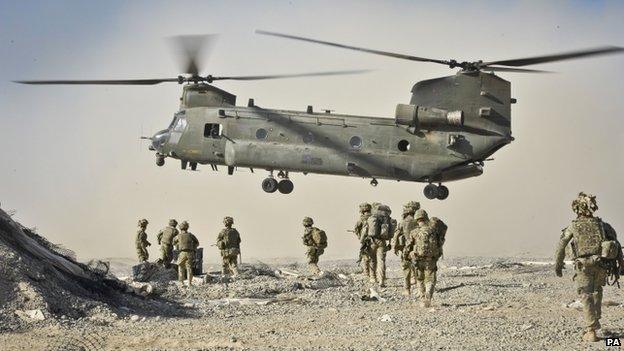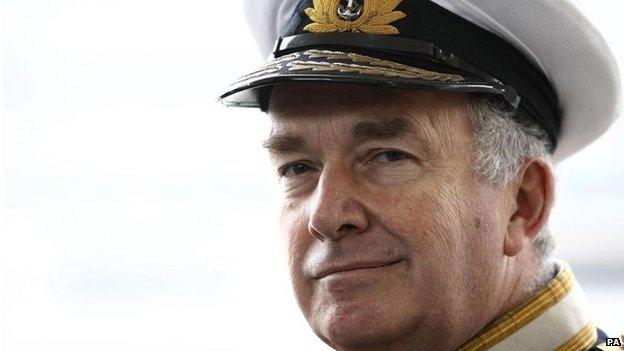Budget 2015: UK to meet Nato's defence spending target
- Published

The chancellor has pledged in his summer budget to meet Nato's target of spending 2% of national income on defence every year, up to 2020.
The announcement was largely unexpected because ministers had previously only promised to meet the target this year.
George Osborne said he and David Cameron were not prepared to see threats to the country go unchallenged.
In its budget policy document, the government committed to maintain the size of the Army at 82,000.
In his first Conservative budget, Mr Osborne told MPs: "Britain has always been resolute in defence of liberty and the promotion of stability around the world.
"And with this government it will always remain so.
"So today I commit additional resources to the defence and security of the realm."
As well as committing to meet Nato's target, he announced:
Spending on defence to rise in real terms - 0.5% above inflation - every year during the Parliament
New £1.5bn Joint Security Fund for investment in military and intelligence agencies
Recipients of the Victoria Cross and George Cross to see pension annuities rise from £2,129 to £10,000, paid for by bank fines
The government to fund a memorial to victims of terrorism overseas

Analysis by BBC defence correspondent Jonathan Beale
Even those working inside the Ministry of Defence were pleasantly surprised by the chancellor's announcement.
A pledge to spend 2% of the nation's wealth on defence - a Nato target - was noticeably absent from the Conservative manifesto. This caused deep angst on the Tory backbenches and among allies - most notably in the US - not least because of the growing threats from Islamic extremism and a more aggressive Russia.
But after months of dodging the issue, the chancellor's now said the MoD will get a real increase in its budget every year. Over the next five years that should amount to about an extra £3bn.
But there are conditions. George Osborne said the MoD would have to demonstrate efficiencies. The devil may be in the detail.
The government's already been accused of boosting its figures to meet the 2% target by including peacekeeping operations and pensions.
But there is now hope among service chiefs that the forthcoming defence review will be driven by strategy, not savings.
Read more:


Former Navy chief Admiral Lord West said the 2% commitment was crucial in a dangerous, unstable world
Chief of the Defence Staff General Sir Nicholas Houghton said it was a "great day for defence" and would allow the armed forces to "start building back".
He said the pledge "gives us positive choices for the future" in areas including counter terrorism and war fighting capability.
"We've taken some capability risk over the last five years, now is the time we start building back," he said.
Former Navy chief Admiral Lord West said he was "absolutely delighted" the Nato target would be met, saying it was crucial in a "dangerous and unstable world".
He said: "That's got to be seen very much as a minimum. My only concern is what exactly is now included in that methodology compared to two years ago? I would like a very clear explanation."
US ambassador to Britain Matthew Barzun said on Twitter, external: "America welcomes HMG's [Her Majesty's government's] commitment to 2% defense spending, proving again the indispensability of the UK to global security."
Labour's former Treasury minister John Healey has also welcomed the 2% commitment.
- Published8 July 2015